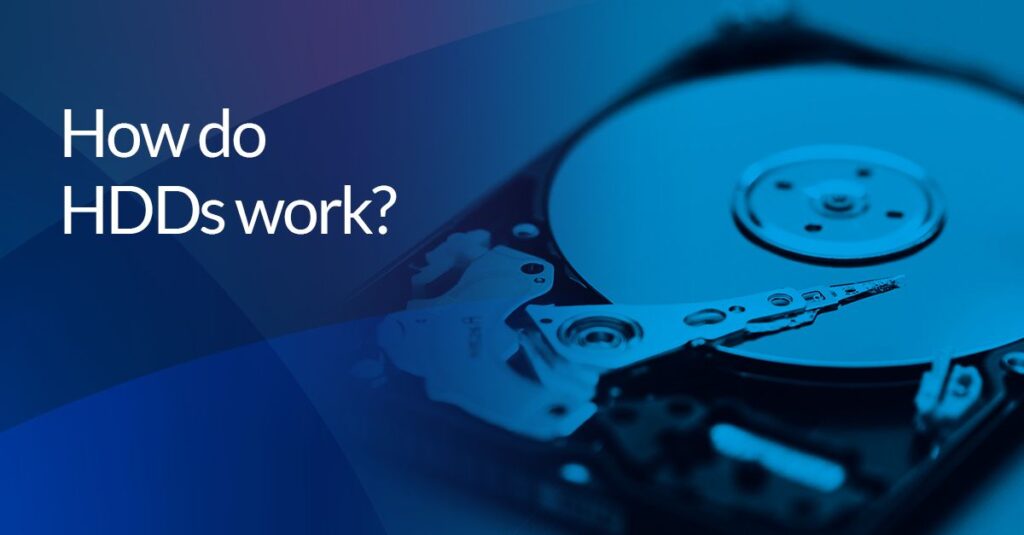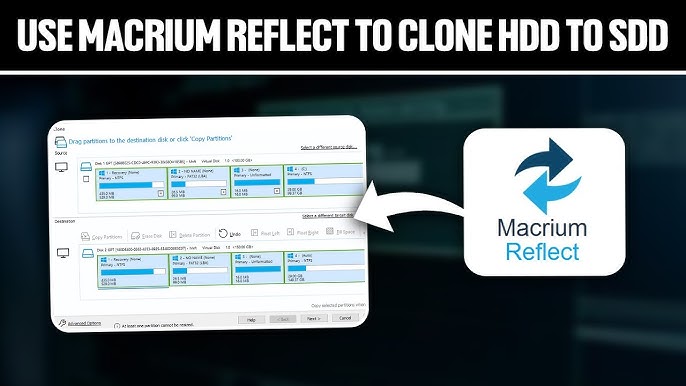Macrium Reflect has established itself as one of the leading disk imaging and backup solutions for both home and business users. Designed to offer reliable, secure, and fast backup and recovery options, it supports a wide array of storage configurations, operating systems, and hardware. Among its most vital features is the ability to interact with various file systems, which fundamentally define how data is stored and retrieved on storage devices.
Understanding which file systems Macrium Reflect supports is essential for users aiming to ensure compatibility during backup and restore processes. Whether you’re creating full disk images, cloning drives, or restoring individual partitions, the file system compatibility of your backup software directly impacts its effectiveness. In this article, we delve into the file systems supported by Macrium Reflect and explore how this functionality affects real-world backup strategies.
Overview of File Systems and Their Importance
A file system is the underlying structure that determines how data is stored, accessed, and organized on a disk. It defines how directories and files are named, stored, and retrieved, and it also governs permissions, metadata, and file attributes. Different operating systems use different file systems, and even within a single OS, multiple file systems may be supported for different use cases.
When it comes to data protection tools like Macrium Reflect, supporting a broad spectrum of file systems ensures greater flexibility and broader application. Whether you’re dealing with legacy systems, modern SSDs, external USB drives, or enterprise-class RAID arrays, file system compatibility can dictate whether your backup solution performs reliably and without errors.
Macrium Reflect, in particular, is engineered to be versatile and accommodating, handling a wide range of file systems with ease. This versatility allows users to perform seamless backups and restores across devices and platforms without the constraints of file system incompatibility.
File System Compatibility in Disk Imaging and Cloning
Macrium Reflect employs sector-by-sector imaging technology to back up or clone partitions. It is intelligent enough to recognize the file system on a partition and use that information to optimize the imaging process. When the file system is known and supported, Macrium Reflect can perform a “smart” image, skipping unused sectors and dramatically reducing image size and time.
On the other hand, if the file system is unknown or unsupported, Macrium Reflect defaults to a sector-by-sector copy, duplicating every sector regardless of its contents. This can still result in a valid backup, but it’s less efficient and can produce significantly larger image files.
Therefore, knowing which file systems are natively supported by Macrium Reflect helps users decide on the best backup strategy and ensures optimal use of storage resources and time.
File System Support for Windows-Based Partitions
Since Macrium Reflect is primarily designed for Windows environments, it offers comprehensive support for the file systems commonly used within Microsoft operating systems. These include the most prevalent types used in desktop, server, and workstation environments.
The most universally supported file system by Macrium Reflect is NTFS (New Technology File System), which is the default format for modern versions of Windows, including Windows 10, Windows 11, and Windows Server editions. Macrium Reflect can not only read NTFS partitions with full awareness of structure and metadata, but also create images and perform restorations with full fidelity to the original data layout. NTFS support extends to advanced features such as file permissions, compression, encryption, and even sparse file handling, ensuring that backups are true to the source.
Another commonly used file system in legacy environments is FAT32. While FAT32 is no longer the default file system for new Windows installations, it is still widely used in removable media such as USB drives and memory cards. Macrium Reflect supports FAT32 imaging and restoration efficiently. It can recognize the structure of FAT32 volumes and back them up without unnecessary data replication. This makes it ideal for backing up legacy systems or devices that still use FAT32 for compatibility reasons.
Additionally, exFAT (Extended File Allocation Table), which is optimized for flash drives and external storage media, is also supported. While not as robust as NTFS, exFAT bridges compatibility between Windows and macOS and is increasingly used in shared storage devices. Macrium Reflect supports exFAT for both backup and recovery, ensuring that external media using this format can be reliably imaged or cloned.
File Systems in Multi-OS Environments
As the IT world becomes increasingly hybrid, environments often include not just Windows, but also Linux and macOS systems. Although Macrium Reflect is a Windows-based application and is not natively designed to run on Linux or macOS, it can still recognize and handle some of the file systems from those operating systems, primarily during imaging tasks.
Among the most notable non-Windows file systems supported by Macrium Reflect is ext3 and ext4, which are standard in Linux distributions. While Macrium Reflect cannot interpret the internal structure of these file systems in the same way it does with NTFS or FAT32, it can still image and restore these partitions using sector-level operations. This means it treats ext3 and ext4 partitions as raw data blocks, duplicating them accurately without needing to understand the file system metadata or contents. This is useful in dual-boot configurations or where Linux data partitions need to be preserved.
Similarly, Macrium Reflect can image partitions formatted in HFS+, the older file system used by macOS before the introduction of APFS. Again, the software treats these partitions as raw data, performing sector-level copies without detailed file-level awareness. This is particularly useful when backing up external drives formatted for use with macOS, or in recovery scenarios where the goal is to preserve the disk exactly as it is.
However, it is important to note that Macrium Reflect does not currently support APFS (Apple File System), the default file system for modern versions of macOS. Attempting to image APFS volumes will result in a sector-by-sector copy without any ability to verify file-level integrity. This limitation should be taken into account when considering Macrium Reflect for environments where APFS volumes are common.
Impact of File System Support on Backup Performance
The efficiency of backup operations in Macrium Reflect is directly tied to the file system involved. When dealing with fully supported file systems like NTFS, the software can utilize intelligent imaging techniques. This means that it can analyze the Master File Table (MFT), identify which sectors contain active data, and avoid copying unused space. The result is smaller backup files, faster completion times, and reduced storage overhead.
Conversely, when Macrium Reflect encounters unsupported or unknown file systems, it reverts to a sector-by-sector backup approach. In this mode, every sector of the partition is copied regardless of whether it contains data. This ensures accuracy but can significantly increase image size and the time required to complete the operation.
Additionally, restoration speed and flexibility are also affected by file system support. With fully supported systems like NTFS, users can perform file-level restores, mounting the image and browsing its contents as though it were a regular disk. This capability is invaluable for restoring individual files without needing to reimage an entire drive. For unsupported file systems, this level of granularity is not possible, and users must restore the entire partition or disk as a whole.
Compatibility with Advanced Storage Configurations
Many modern computing environments utilize complex storage configurations such as dynamic disks, GPT partitioning, RAID arrays, and BitLocker encryption. Macrium Reflect is engineered to handle these scenarios effectively, and file system support plays a role in this functionality.
Dynamic disks, often used in professional or enterprise setups, can host volumes formatted with NTFS or FAT32. Macrium Reflect supports these volumes and recognizes their configuration, allowing users to back them up or restore them just as easily as basic disks.
In terms of GPT (GUID Partition Table) partitions, which are increasingly replacing MBR due to their support for larger disk sizes and better reliability, Macrium Reflect offers full support. GPT partitions can contain NTFS, FAT32, or exFAT volumes, and Macrium Reflect handles these with full awareness, enabling both intelligent imaging and restoration.
BitLocker-encrypted volumes introduce additional complexity. If a volume is encrypted using BitLocker and remains locked during imaging, Macrium Reflect can still perform a sector-by-sector copy. However, if the volume is unlocked at the time of imaging, and the file system is NTFS, Macrium Reflect can perform a smart image and maintain encryption metadata. When restoring, users can choose to restore with or without the BitLocker encryption intact, depending on the scenario.
Imaging Unsupported or Unrecognized File Systems
In some advanced or niche scenarios, users may encounter file systems that Macrium Reflect cannot identify or interpret, such as proprietary file systems used in embedded systems or certain enterprise storage solutions. In these cases, Macrium Reflect does not abandon the task—it simply switches to raw imaging mode.
This means the software copies every sector on the partition exactly as it exists, without attempting to interpret its structure. The image can later be restored to identical hardware or used in forensic or archival situations where exact data replication is required. While this approach lacks the efficiency of smart imaging, it ensures that data is not lost due to incompatibility.
Conclusion
File system support is more than a technical detail—it is a central component of any backup and disaster recovery plan. Macrium Reflect offers broad and robust support for major file systems, including NTFS, FAT32, and exFAT, with additional capabilities for handling ext3, ext4, and HFS+ in a sector-level capacity. This compatibility allows Macrium Reflect to serve as a powerful backup tool in diverse environments, from home systems to professional data centers. Whether you’re backing up a modern Windows PC, imaging a Linux dual-boot setup, or preserving data on an external macOS-formatted drive, Macrium Reflect delivers reliable performance.



